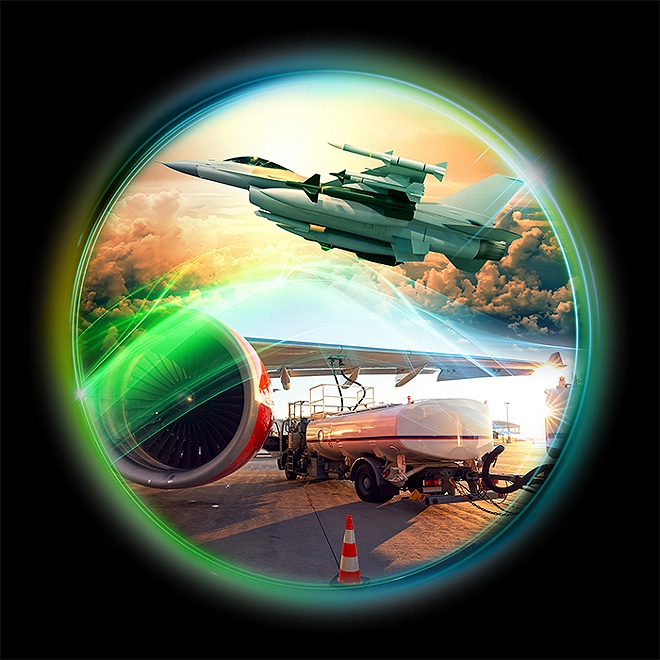The business of space: achieving new heights through collaboration
In 2022, there were 186 successful rockets launches—a new record that may point to the increasing ease with which space technology can now be deployed.1 Add to that significant advances in manufacturing and operating space-based assets, and it’s clear that a new era of business opportunity in space has arrived.
This era can offer opportunity to both incumbents within the sector and new players alike. And by focusing on innovation and working across the space ecosystem, there is a range of possibilities players can explore to unlock growth.
Why space, why now?
Getting satellites and other space-based assets off the ground has never been easier. New technologies, such as reusable launch vehicles and miniaturized satellites, have simplified and reduced the expense of manufacturing, launching, and operating these assets. With space systems and assets now generally within reach, a wider range of players are looking to enter the space sector and explore new business applications, including a growing number of venture capital and private equity (PE) firms.2 Over the past decade, the global space sector has attracted PE investment of about US$272 billion into 1,791 companies.3
But it’s the increasing demand for space data and services enabled by satellites that is mostly driving the growth potential in this market. Government agencies, private companies, and research institutions are increasingly using space-based data to help support a wide range of applications, such as satellite broadband. Communication service providers are also looking to benefit from data generated by satellites.4 And with 6.5 billion satellite-enabled global smartphones now in use,5 the demand for services doesn’t look like it’s going to slow down any time soon.
New opportunities for the ecosystem
Drawing on the entirety of the space ecosystem can help the sector fully capitalize on the opportunities space now presents. This ecosystem of course includes space companies—both legacy and new entrants—that build products such as launch vehicles and satellites as well as provide services to consumers from space. But it also includes such key players as government agencies that build, launch, and manage space-based capabilities for national security and scientific research. Then there are the non-space companies that are considering an entry into the market. And academia contributes to innovation within the sector through research and talent.
These players are potential collaborators that can come together to help build a network of investors, developers, integrators, suppliers, government agencies, academia, and research labs. By leveraging the breadth and depth of knowledge across these domains, companies could pursue a variety of opportunities, especially by innovating and building new business models within the following key areas:
- Space data-as-a-service: Data gathered from space via the wide variety of space-based instruments and platforms can be increasingly used for a variety of purposes, including military communications, open ocean surveillance, environmental and climate change monitoring, and emergency response. It also has the potential to help support new technologies and industries, such as autonomous vehicles. As the cost of space access declines and advances in technology continue, the amount and variety of data gathered from space will likely grow, offering the possibility of new applications and models.
- In-space manufacturing: The vacuum and microgravity conditions of outer space can offer a unique opportunity for the industrial production of materials and structures that could be difficult or impossible to produce on Earth. For example, materials such as semiconductors and optical fibers require a high degree of purity that can be difficult to achieve on Earth—but can be achieved in the vacuum of space. This kind of manufacturing can also potentially improve processes and possibly reduce energy consumption by 60%.6
- Additive manufacturing: Companies operating within the space ecosystem should explore how additive manufacturing—the production of complex objects by building them up layer by layer—can help reduce the cost of space missions by simplifying the manufacturing process and reducing the need for specialized tooling. Innovating with additive manufacturing can also enable the development of new technologies—such as additively manufactured propulsion systems and high-performance materials.
- Robotics in space: Significant advancements in the past few years are yielding ever more capable and versatile robotics systems that can allow the remote operation of spacecraft, rovers, and other devices. Continuing to evolve and explore these technologies can expand robotic capabilities—similar to how robotic arms are now widely being used on spacecraft to perform such tasks as servicing, maintenance, and assembly. And while declining costs may mean it’s easier to simply send up a new satellite when the previous one fails, on-orbit servicing could help minimize unnecessary space debris.
- Space sustainability: The space surrounding Earth is increasingly congested with debris due to the launch, collision, and abandonment of satellites on the rise. At the close of 2022, there were more than 6,000 active satellites orbiting Earth. The collision of existing satellites is a major contributor to space debris—debris that may go on to further damage other satellites. Advanced technologies should be tapped to help mitigate this situation—such as using artificial intelligence and machine learning to help predict satellite and debris positioning with greater accuracy.
- National security space: The importance of space for national security has spurred demand for space-based assets and technologies used for reconnaissance, navigation, and communication. And it’s not just advanced militaries looking to capitalize on space technology—many smaller countries are now investing in space capabilities to improve their national security. This may increase the need for off-the-shelf technology as well as the potential for commercial firms to collaborate with these governments on developing new technology.
Unlocking space’s potential
The costs to operate in space will likely keep falling as advances in technology continue to arrive. This means the time to explore the opportunities space presents is now. Collaboration will likely be critical, however, as scaling these opportunities could most likely require concerted efforts across the space ecosystem to help encourage investment and incentivize demand.
This kind of effort could make space closer than ever for those companies looking to expand their space-based businesses as well as offer new entrants a foothold. And with innovation and an eye to collaboration, the sky may no longer be the limit.
To learn more about the business of space see the Deloitte US article, Riding the exponential growth in space.
This communication contains general information only, and none of Deloitte Touche Tohmatsu Limited (“DTTL”), its global network of member firms or their related entities (collectively, the “Deloitte organization”) is, by means of this communication, rendering professional advice or services. Before making any decision or taking any action that may affect your finances or your business, you should consult a qualified professional adviser.
Deloitte refers to one or more of Deloitte Touche Tohmatsu Limited (“DTTL”), its global network of member firms, and their related entities. DTTL (also referred to as “Deloitte Global”) and each of its member firms are legally separate and independent entities. DTTL does not provide services to clients. Please see www.deloitte.com/about to learn more.
©2023. For information, contact Deloitte Global.
Our thinking
Paris Air Show 2023
Deloitte is excited to be at the 54th Paris Air Show which will take place in Paris, France at Le Bourget Parc des Expositions. As one of the largest aviation and space events in the world, the show will bring together major industrial players across the global aerospace and defense sector.



